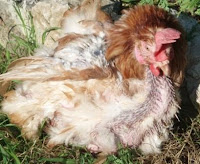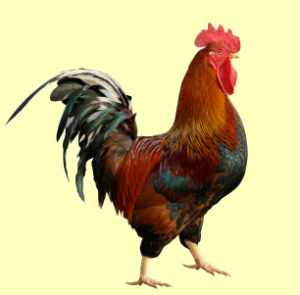
Most vegetables like broccoli, sweetcorn, cabbage, lettuce etc. chickens can eat. However, any potato skins should be boiled in plain water before feeding. Chickens also love mixed corn, maize and wheat, mine adore porridge. Although, you have to make sure your chook's aren't getting to fat!!! To stop this spread the corn across the ground so chickens have to scratch to find it, hang lettuce and broccoli from a feeding pole. For more info on chicken obesity scroll down the page. Chickens especially prone to obesity is the Orpington Buff.





